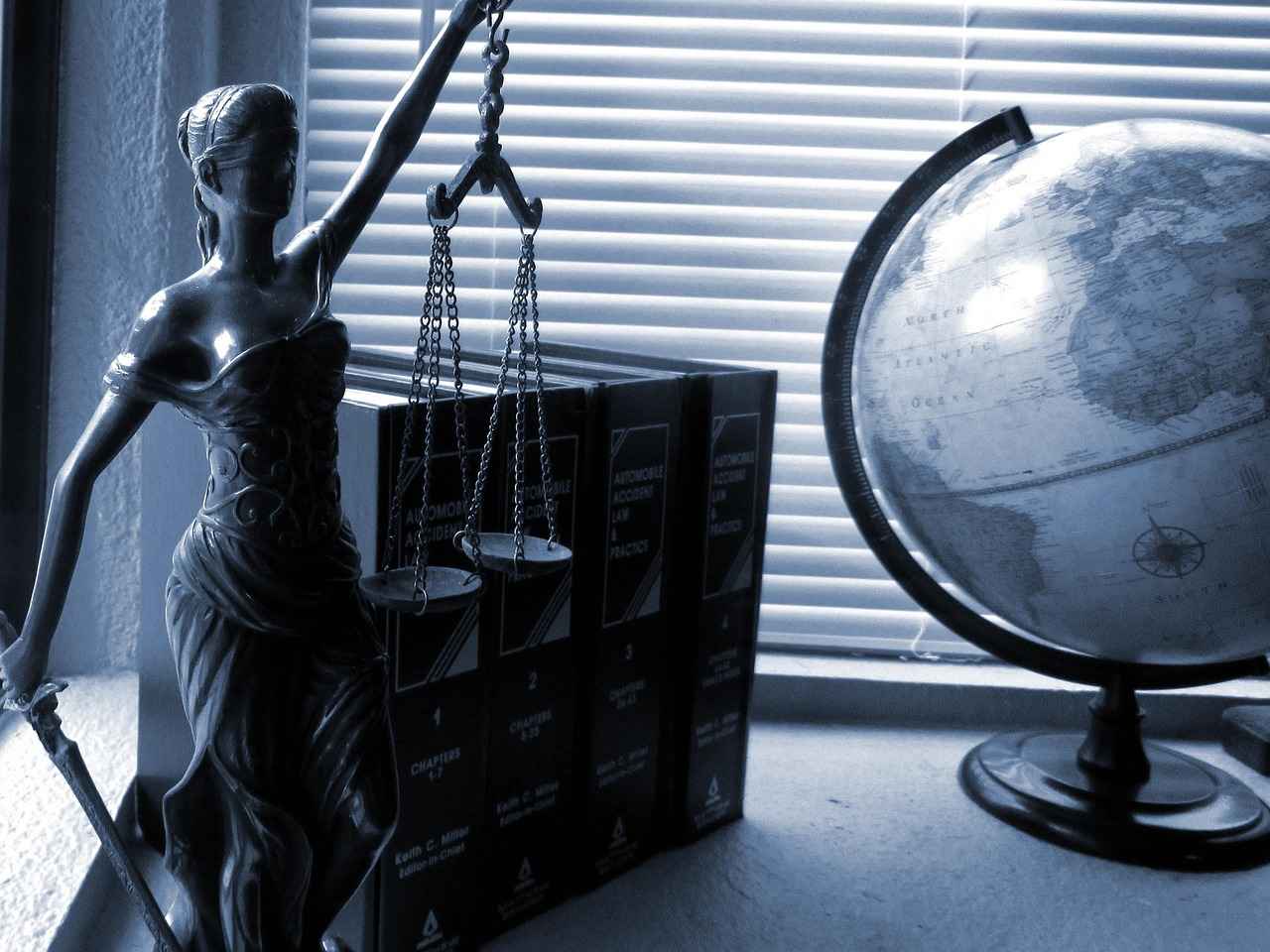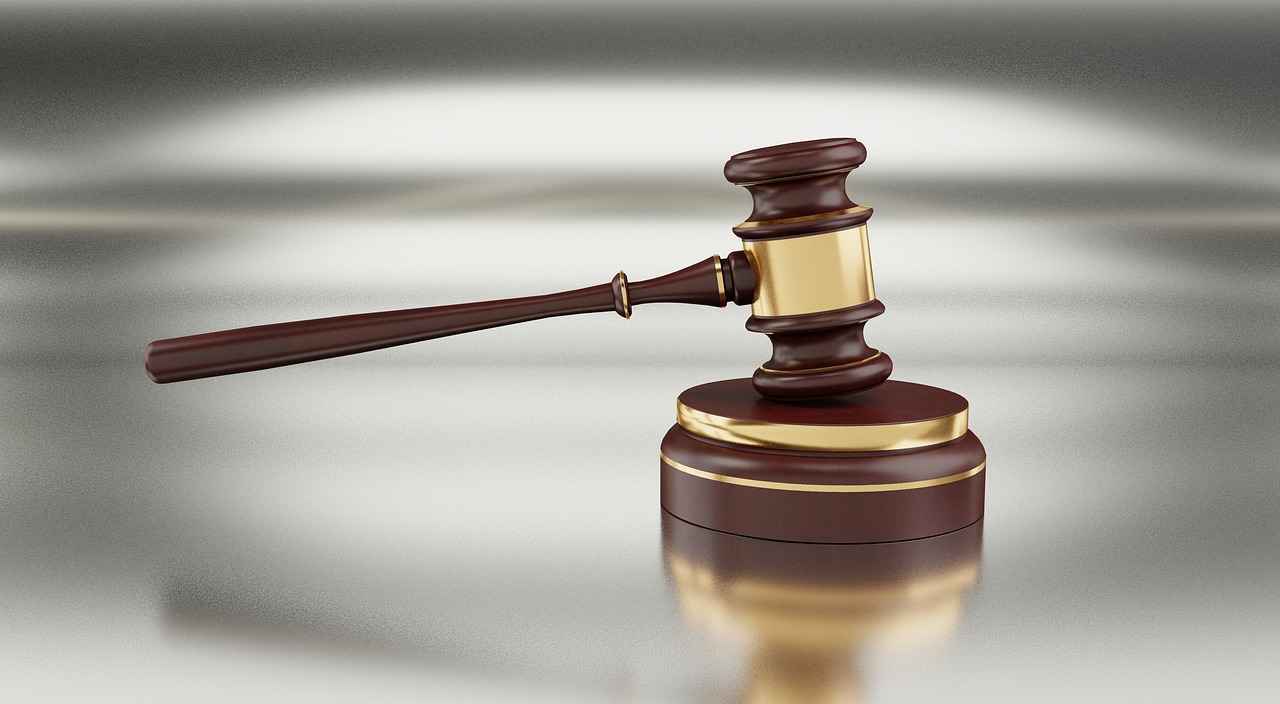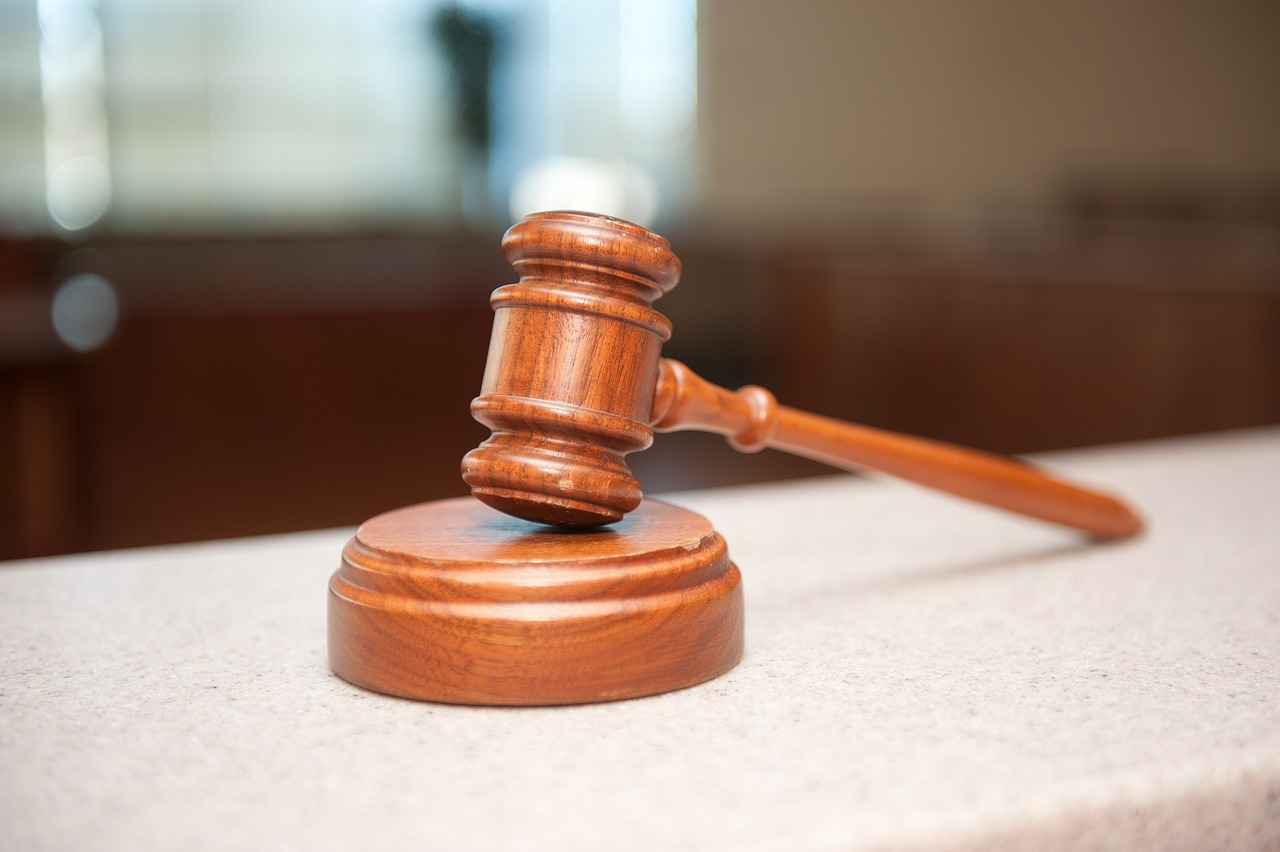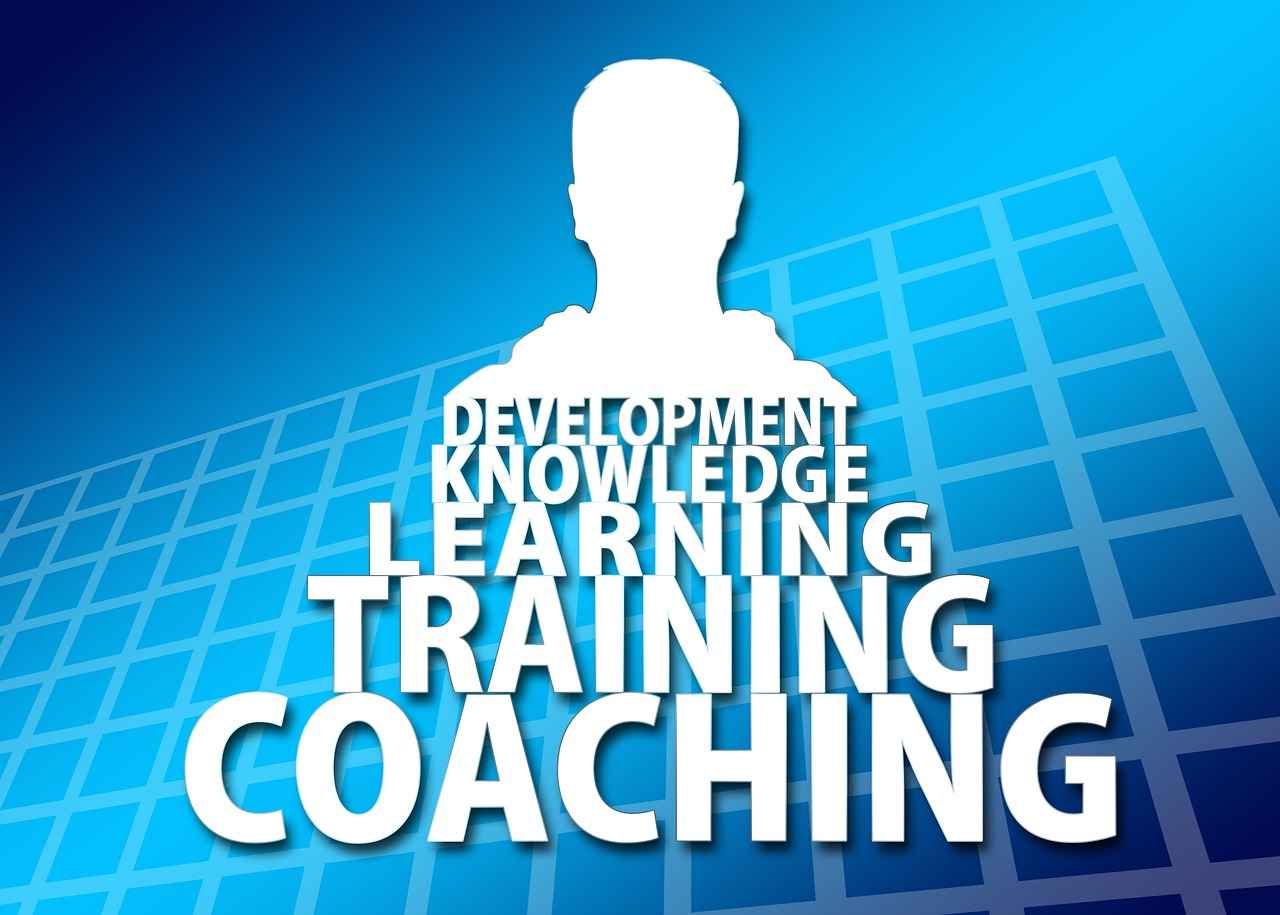This article provides a comprehensive guide to help individuals in Des Moines, Iowa, navigate the legal landscape and find qualified attorneys for various legal matters.
Finding the right attorney can be a daunting task, especially in a bustling city like Des Moines. Whether you are facing a personal injury case or a complex family law issue, having a competent lawyer by your side is crucial. Here’s how to successfully navigate your search for legal representation.
Personal injury cases arise when an individual suffers harm due to another’s negligence or intentional actions. To find a skilled personal injury attorney, consider looking for professionals who have a proven track record in winning settlements and verdicts in similar cases. Resources such as Avvo or Martindale-Hubbell can help you gauge an attorney’s reputation and experience.
Medical malpractice claims require specialized expertise. Look for attorneys who have experience in healthcare law and a history of successful cases. Verify their credentials and check for any disciplinary actions. Online reviews and legal forums can provide insights into their competence and client satisfaction.
In breach of contract disputes, it’s essential to hire an attorney who thoroughly understands contract law. Seek out lawyers who have experience in your specific industry, as they will be more familiar with relevant regulations and negotiation tactics. Always ask for references from past clients to assess their effectiveness.
Property disputes can be intricate, involving zoning laws and property rights. An attorney specializing in real estate law can provide invaluable assistance. Look for professionals who are members of the American Bar Association and have experience in property litigation. Check their case history to ensure they have successfully handled similar disputes.
Landlord-tenant disputes often escalate and require legal intervention. Seek an attorney who specializes in real estate law, particularly in tenant rights. Verify their experience with local housing laws, as regulations can vary significantly by location. Online platforms like LegalMatch can help you find qualified attorneys in your area.
Defamation, including libel and slander, can severely impact one’s reputation. It’s vital to hire an attorney experienced in media law. Look for lawyers who have successfully handled defamation cases and can provide references. A solid understanding of First Amendment rights is also crucial in these cases.
Employment disputes can encompass issues like wrongful termination and discrimination. Finding an attorney who specializes in employment law is essential. Look for those who have experience with cases similar to yours and have a good standing with the Equal Employment Opportunity Commission (EEOC).
Product liability cases involve injuries caused by defective products. An attorney with experience in this field can guide you through the complexities of litigation. Ensure they have a history of handling product liability claims and are familiar with federal and state regulations governing such cases.
Wrongful death claims seek justice for families affected by negligence. It’s essential to find a compassionate and experienced attorney who can navigate these sensitive matters. Look for lawyers who have a strong track record in wrongful death cases and can provide emotional support during the legal process.
Class action lawsuits allow groups to seek justice collectively. It’s crucial to find an attorney with experience in managing large-scale cases. Check their history of successful class actions and ensure they have the resources to handle complex litigation.
Assault and battery cases require skilled legal representation. Seek an attorney who specializes in criminal law and has a solid understanding of self-defense laws. Look for professionals with a proven track record in defending such cases and who can provide a strategic approach to your defense.
Drug offenses can carry severe penalties. Hiring an attorney with experience in criminal defense is essential. Verify their credentials and ensure they have successfully handled drug-related cases. Look for attorneys who are familiar with local laws and can provide a robust defense strategy.
Family law encompasses various issues like divorce, custody, and support. It’s vital to find an attorney who specializes in family law and understands the emotional complexities involved. Check their experience with similar cases and their approach to negotiation and litigation.

Understanding Personal Injury Cases
Understanding personal injury cases is essential for anyone who has suffered harm due to the negligence or intentional actions of another party. Personal injury law encompasses a wide range of incidents, including car accidents, slip and fall cases, and medical malpractice. These cases can be complex, requiring a thorough understanding of both legal principles and the specific circumstances surrounding each incident.
What Constitutes a Personal Injury Case?
A personal injury case arises when an individual suffers harm due to someone else’s actions or negligence. This can include physical injuries, emotional distress, and financial losses. To establish a personal injury claim, the injured party must demonstrate that the other party had a duty of care, breached that duty, and caused the injury as a direct result. Common examples include:
- Car Accidents: Often caused by reckless driving, distracted driving, or driving under the influence.
- Slip and Fall Accidents: Occur when property owners fail to maintain safe conditions.
- Medical Malpractice: Involves negligence by healthcare professionals that results in harm to patients.
Why It’s Crucial to Hire a Skilled Attorney
Finding a skilled personal injury attorney is crucial for obtaining fair compensation. An experienced lawyer understands the nuances of personal injury law and can navigate the complexities of the legal system on your behalf. They will gather evidence, negotiate with insurance companies, and advocate for your rights in court if necessary.
How to Find a Qualified Personal Injury Attorney
When searching for a personal injury attorney, consider the following steps:
- Research and Referrals: Ask friends, family, or colleagues for recommendations. Online reviews and legal directories can also provide insights into an attorney’s reputation.
- Check Credentials: Look for attorneys with specific experience in personal injury cases. Verify their education, licensing, and any professional affiliations.
- Consultations: Take advantage of free consultations offered by many attorneys. This allows you to discuss your case and gauge the attorney’s expertise and approach.
- Fee Structure: Understand the attorney’s fee structure. Most personal injury attorneys work on a contingency fee basis, meaning they only get paid if you win your case.
Red Flags to Avoid
While searching for a personal injury attorney, be wary of the following red flags:
- Lack of Experience: Avoid attorneys who do not specialize in personal injury law or lack a track record of successful cases.
- Poor Communication: An attorney who is unresponsive or fails to explain legal concepts clearly may not be the best choice.
- Pressure Tactics: Be cautious of attorneys who pressure you into signing contracts or making quick decisions.
By taking the time to research and choose a qualified personal injury attorney, you can significantly increase your chances of receiving the compensation you deserve for your injuries. Remember, the right legal representation can make all the difference in the outcome of your case.

Choosing a Medical Malpractice Attorney
When faced with the complexities of medical malpractice cases, it is crucial to secure the right legal representation. These cases are often intricate, involving a deep understanding of both medical principles and legal standards. Therefore, finding an attorney who specializes in healthcare law is essential.
One of the first steps in the process is to identify attorneys with a proven track record in medical malpractice litigation. Look for lawyers who have successfully handled cases similar to yours. This can often be determined by reviewing their case history and client testimonials. A seasoned attorney will not only understand the nuances of the law but will also be familiar with medical terminology and practices, which can significantly impact the outcome of your case.
Additionally, consider the attorney’s experience level in the field. Attorneys who have spent years specializing in medical malpractice are likely to have established relationships with medical experts and a network of resources that can enhance your case. They will also be well-versed in the common defenses used by healthcare providers, allowing them to prepare a strong case on your behalf.
Another important factor is the attorney’s approach to client communication. A good attorney should be willing to explain complex legal concepts in a way that is easy to understand. They should be responsive to your questions and concerns, keeping you informed every step of the way. This level of engagement is crucial, as it can affect your comfort and confidence in the legal process.
When searching for a medical malpractice attorney, utilize online legal directories and platforms that provide ratings and reviews. Websites like Avvo, Martindale-Hubbell, and FindLaw can help you compare different attorneys based on their qualifications, client feedback, and disciplinary records. Pay attention to any red flags, such as a lack of experience in medical malpractice or negative reviews regarding their communication style.
Lastly, schedule initial consultations with potential attorneys. Many offer free consultations, allowing you to gauge their expertise and compatibility with your needs. During these meetings, ask about their success rates, approach to handling cases, and how they plan to tackle your specific situation. This will give you a clearer picture of what to expect and help you make an informed decision.
In summary, choosing the right medical malpractice attorney involves thorough research and consideration of various factors, including experience, communication, and client feedback. By taking these steps, you can enhance your chances of securing a favorable outcome in your case.

Finding a Breach of Contract Lawyer
When entering into a contract, whether for business or personal matters, both parties expect that the terms will be honored. However, breach of contract disputes can arise in various contexts, leading to significant legal complications. These disputes often occur in situations involving real estate transactions, employment contracts, service agreements, or any situation where an agreement exists. Hiring an attorney who understands contract law and negotiation tactics is vital for resolving these issues effectively.
In the realm of breach of contract, it is essential to identify an attorney who not only has a firm grasp of the law but also possesses strong negotiation skills. This is because many contract disputes can be resolved outside of court through effective negotiation. An attorney experienced in this area will assess the specifics of your case, advise you on potential outcomes, and help you strategize the best course of action.
When searching for a breach of contract lawyer, consider the following key factors:
- Experience: Look for an attorney who specializes in contract law and has a proven track record in handling breach of contract cases. Their experience will provide invaluable insights into how similar cases have been resolved.
- Reputation: Research potential attorneys through online reviews, testimonials, and professional ratings. A lawyer with a strong reputation in the legal community is often a good choice.
- Communication Skills: Effective communication is crucial in legal matters. Ensure that the attorney can explain complex legal concepts in a way that you can understand and that they are responsive to your inquiries.
- Negotiation Skills: Since many breaches can be resolved through negotiation, it is vital to hire an attorney who is not only skilled in litigation but also excels in negotiation tactics.
- Fee Structure: Understand the attorney’s fee structure before hiring. Some may charge hourly, while others may work on a contingency basis. Make sure their fees align with your budget.
Another important aspect to consider is the attorney’s familiarity with the specific type of contract involved in your case. For instance, if your dispute arises from a real estate contract, seek an attorney with experience in real estate law. Similarly, if it involves employment contracts, look for someone well-versed in employment law.
In major metropolitan areas like New York City, Los Angeles, and Chicago, you can utilize various platforms to find qualified attorneys. Websites like Avvo and Lawyers.com provide directories of lawyers along with ratings and reviews from previous clients. Additionally, local bar associations often have referral services that can guide you to reputable attorneys in your area.
Be cautious of red flags when hiring a lawyer. If an attorney guarantees a specific outcome or pressures you to make quick decisions, it may be wise to consider other options. Trust your instincts; a good attorney will prioritize your best interests and provide a clear outline of the potential risks and benefits involved in your case.
In conclusion, finding the right breach of contract lawyer is essential for effectively navigating the complexities of contract law. By focusing on experience, reputation, communication skills, negotiation abilities, and fee structures, you can make an informed decision that will help protect your interests and resolve disputes efficiently.

Navigating Property Disputes
Property disputes can arise from various situations, including disagreements over boundaries, zoning issues, and property rights. These disputes often involve complex legal frameworks and require a thorough understanding of both state and local laws. Whether you are a property owner, a tenant, or a developer, having the right legal representation can be crucial in resolving these conflicts.
One of the first steps in navigating property disputes is to understand the specific legal issues at play. For instance, zoning laws dictate how land can be used and what types of structures can be built. If you are facing a zoning dispute, it is essential to consult with an attorney who has experience in land use and zoning law. They can help you understand your rights and the legal avenues available to challenge or comply with zoning regulations.
Another common issue in property disputes is the question of property rights. This can encompass a wide range of issues, from easements and encroachments to disputes over property lines. An experienced attorney can assist in conducting a thorough title search and reviewing property deeds to clarify ownership and rights. They can also help in negotiating with the other party to reach a settlement, avoiding the need for lengthy court proceedings.
When searching for a qualified attorney to handle your property dispute, consider the following tips:
- Look for specialization: Choose an attorney who specializes in real estate law and has a proven track record in handling property disputes.
- Check credentials: Verify their educational background, bar association membership, and any additional certifications related to property law.
- Read reviews: Look for client testimonials and online reviews to gauge the attorney’s reputation and success rate.
- Consult multiple attorneys: Don’t settle for the first attorney you meet. Schedule consultations with several to find one who understands your needs and has a compatible approach.
It is also important to be aware of red flags when selecting an attorney. Avoid those who make unrealistic promises or guarantees regarding the outcome of your case. Additionally, be cautious of attorneys who lack transparency about their fees or seem disinterested in your case during initial consultations.
In summary, navigating property disputes requires a solid understanding of the legal landscape and the ability to communicate effectively with legal professionals. By taking the time to find a knowledgeable attorney, you can protect your interests and work towards a favorable resolution.

Landlord-Tenant Disputes: What to Look For
Landlord-tenant disputes are a common occurrence in the rental market, often stemming from misunderstandings or disagreements over lease agreements, property conditions, or tenant rights. When these issues arise, it is crucial to understand your rights as a tenant or landlord and to seek legal assistance if necessary. Here’s a comprehensive guide on what to look for when navigating landlord-tenant disputes.
First and foremost, understanding your rights is essential. Tenants have specific protections under state and federal laws, which can vary significantly by location. Familiarizing yourself with local landlord-tenant laws can help you identify whether your situation warrants legal intervention. For example, tenants may have the right to a habitable living environment, timely repairs, and protection against unlawful eviction.
When seeking an attorney, consider the following key factors:
- Experience in Real Estate Law: Look for attorneys who specialize in real estate or landlord-tenant law. Their experience will be invaluable in navigating the complexities of your case.
- Track Record of Success: Research the attorney’s history with similar cases. A proven track record can provide insight into their effectiveness in resolving disputes.
- Local Knowledge: An attorney familiar with the local rental laws and court systems can offer a significant advantage. They will understand the nuances of the law as it applies to your specific jurisdiction.
- Communication Skills: Effective communication is vital. Your attorney should be able to explain legal concepts clearly and keep you informed throughout the process.
- Client Reviews and Testimonials: Reading reviews from previous clients can provide insight into an attorney’s reputation and the quality of their services.
In addition to these factors, be aware of potential red flags:
- Unclear Fees: Ensure that the attorney provides a clear outline of their fees and payment structure. Avoid those who are vague about costs or who demand large upfront payments without a clear service agreement.
- Lack of Specialization: Be cautious of attorneys who claim to handle a wide range of legal issues but lack specific experience in landlord-tenant disputes.
- Poor Communication: If an attorney is difficult to reach or unresponsive during initial consultations, this may indicate challenges in communication during your case.
To find qualified attorneys in major metropolitan areas such as New York City, Los Angeles, or Chicago, consider using reputable legal directories like Avvo or FindLaw. These platforms allow you to filter attorneys by specialization, location, and client reviews, making it easier to find the right fit for your needs.
Lastly, don’t hesitate to schedule consultations with multiple attorneys. This not only allows you to gauge their expertise and communication style but also helps you feel confident in your choice. Remember, a good attorney will prioritize your needs and work diligently to resolve your landlord-tenant dispute effectively.

Defamation Cases: Finding the Right Legal Help
Defamation cases, encompassing both libel and slander, can have a profound impact on an individual’s or organization’s reputation. In today’s digital age, where information spreads rapidly, the consequences of defamatory statements can be devastating. It is essential to understand the nuances of these cases and the importance of hiring a qualified attorney experienced in media law.
When seeking legal representation for defamation, consider the following key points:
- Experience in Media Law: Look for attorneys who specialize in media law. They should have a thorough understanding of the First Amendment and the legal standards for defamation. This expertise is crucial, as defamation laws can vary significantly from state to state.
- Track Record: Investigate the attorney’s history with defamation cases. A successful track record can indicate their capability to handle your case effectively. Ask for references or case studies that showcase their previous work in similar situations.
- Understanding of Public Figures: If you are a public figure, the legal standards for proving defamation are higher. Ensure that your attorney is familiar with the complexities involved in representing public figures, including the requirement to prove actual malice.
- Initial Consultation: Many attorneys offer a free initial consultation. Use this opportunity to assess their communication skills, approach to your case, and overall compatibility. This meeting can provide insights into their legal strategy and how they plan to address your concerns.
- Fee Structure: Understand the attorney’s fee structure upfront. Some may work on a contingency basis, while others may charge hourly rates. Make sure you are comfortable with their payment model and what to expect in terms of costs throughout the legal process.
Additionally, be wary of red flags when selecting a legal representative:
- Lack of Specialization: Avoid attorneys who do not specialize in defamation or media law. General practitioners may not possess the specific knowledge required to navigate the complexities of your case.
- Overpromising Results: Be cautious of lawyers who guarantee outcomes. Legal cases can be unpredictable, and no attorney can assure you of a specific result.
- Poor Communication: If an attorney is unresponsive or fails to communicate effectively during initial meetings, this may indicate future challenges in your working relationship.
In conclusion, navigating a defamation case requires careful consideration and the right legal guidance. By focusing on an attorney’s experience, track record, and understanding of the intricacies involved in defamation law, you can position yourself for a more favorable outcome.

Employment Disputes: Seeking Legal Representation
Employment disputes can encompass a variety of issues, including wrongful termination, discrimination, and harassment. These disputes often arise in the workplace and can significantly impact an individual’s career and well-being. Therefore, finding an attorney who specializes in employment law is essential for effective representation and to ensure that your rights are protected.
When seeking legal representation for employment disputes, it is crucial to consider several factors to find the most qualified attorney. Here are some key points to keep in mind:
- Specialization: Look for attorneys who specialize in employment law. They should have a deep understanding of federal and state employment regulations, as well as experience handling cases similar to yours.
- Experience: An attorney with a proven track record in employment disputes will be more equipped to navigate the complexities of your case. Ask about their past cases and success rates.
- Reputation: Research the attorney’s reputation within the legal community and among former clients. Online reviews and testimonials can provide valuable insights into their professionalism and effectiveness.
- Communication: Effective communication is vital in legal matters. Ensure that the attorney is responsive and willing to explain the legal process in terms you can understand.
- Initial Consultation: Many employment attorneys offer free initial consultations. Take advantage of this opportunity to discuss your case and gauge whether you feel comfortable working with them.
Additionally, consider using reputable platforms to find qualified attorneys. Websites like Avvo, FindLaw, and Martindale-Hubbell allow you to search for attorneys based on their specialties and client reviews. These platforms often provide detailed profiles, including the attorney’s education, experience, and areas of practice.
It’s also important to be aware of red flags when hiring an attorney. Avoid those who make unrealistic promises about the outcome of your case or who pressure you into making quick decisions. A reputable attorney will provide honest assessments and allow you to make informed choices.
In major metropolitan areas like New York City, Los Angeles, and Chicago, the competition among employment attorneys can be fierce. Take your time to research and consult with multiple attorneys before making a decision. This diligence will help ensure that you find someone who aligns with your needs and can advocate effectively on your behalf.
In summary, navigating employment disputes can be challenging, but with the right legal representation, you can protect your rights and seek justice. By focusing on specialization, experience, reputation, communication, and using trusted platforms, you can find an attorney who will work diligently on your behalf.

Product Liability Claims: How to Choose a Lawyer
When it comes to product liability claims, the legal landscape can be intricate and challenging. These cases arise when individuals suffer injuries or damages due to defective products, which can range from faulty electronics to dangerous pharmaceuticals. Understanding how to choose the right lawyer for such cases is crucial for achieving a favorable outcome.
Why Do You Need a Specialized Lawyer?
Product liability law is a specialized field that requires an attorney with a deep understanding of both consumer protection laws and product safety regulations. A lawyer experienced in product liability can help you navigate the complexities of proving that a product was defective and that the defect caused your injuries. This often involves extensive investigations, expert testimonies, and a thorough understanding of both state and federal laws.
Key Qualities to Look For in a Product Liability Attorney
- Experience: Look for an attorney who has successfully handled product liability cases similar to yours. Their track record can provide insight into their capability.
- Knowledge of the Industry: An attorney familiar with the specific industry related to your case, whether it’s automotive, pharmaceuticals, or consumer goods, will be better equipped to understand the nuances involved.
- Trial Experience: While many cases settle out of court, having a lawyer who is willing and able to take a case to trial can be a significant advantage.
- Client Reviews and Testimonials: Research past client experiences. Positive reviews can indicate a lawyer’s effectiveness and client satisfaction.
How to Find the Right Lawyer
Here are several methods to find qualified product liability attorneys:
- Online Legal Directories: Websites like Avvo, FindLaw, and Martindale-Hubbell provide listings of attorneys along with ratings and reviews.
- State Bar Associations: Check your state’s bar association website for a list of licensed attorneys specializing in product liability.
- Referrals: Ask friends, family, or colleagues if they can recommend a lawyer who specializes in product liability cases.
Red Flags to Avoid
While searching for a product liability attorney, be mindful of potential red flags:
- Lack of Experience: Be cautious of lawyers who do not specialize in product liability or have little experience in this area.
- High Pressure Tactics: Avoid attorneys who pressure you to sign contracts or make quick decisions.
- Unclear Fee Structures: Ensure that the attorney provides a clear explanation of their fees and billing practices. Look for transparency in costs.
In conclusion, selecting the right attorney for your product liability claim is essential for ensuring that you receive the compensation you deserve. By focusing on experience, industry knowledge, and client feedback, you can make an informed decision that will significantly impact the outcome of your case.

Understanding Wrongful Death Claims
Wrongful death claims are a critical area of personal injury law that seeks to provide justice for families who have lost a loved one due to the negligence or wrongful actions of another party. These claims not only aim to hold the responsible party accountable but also to offer financial support to the grieving family members left behind. In such challenging times, having a compassionate and experienced attorney is essential to navigate the complex legal landscape.
When pursuing a wrongful death claim, it’s important to understand the legal definitions and requirements involved. Generally, wrongful death occurs when a person dies as a result of another party’s negligence, whether it be from a car accident, medical malpractice, or any other form of negligence. The family of the deceased can seek compensation for various damages, including:
- Loss of income: Compensation for the financial support the deceased would have provided.
- Funeral expenses: Coverage for burial costs and related expenses.
- Pain and suffering: Compensation for the emotional anguish caused by the loss.
- Loss of companionship: Damages for the emotional support and companionship the deceased provided.
To successfully navigate a wrongful death claim, it’s crucial to find an attorney who specializes in this area of law. Here are some practical steps to identify the right legal representation:
- Research qualifications: Look for attorneys with a strong background in personal injury law, particularly those who have handled wrongful death cases.
- Check reviews and testimonials: Online platforms like Avvo, Martindale-Hubbell, and Google Reviews can provide insights into previous clients’ experiences.
- Assess communication skills: During initial consultations, pay attention to how well the attorney communicates and whether they take the time to address your concerns.
- Evaluate their track record: Ask potential attorneys about their success rates in wrongful death cases and whether they have experience negotiating settlements or litigating in court.
- Discuss fees: Understand the fee structure upfront. Many wrongful death attorneys work on a contingency fee basis, meaning they only get paid if you win your case.
Moreover, be wary of red flags that may indicate a less-than-reputable attorney:
- Lack of transparency: If an attorney is vague about their fees or process, it’s a warning sign.
- Poor communication: If you struggle to get in touch with them or receive timely responses, consider looking elsewhere.
- Pressure tactics: Be cautious of attorneys who push you to sign contracts quickly without allowing you to review the details.
In conclusion, wrongful death claims are complex and emotionally charged. Families facing the loss of a loved one due to someone else’s negligence deserve compassionate and comprehensive legal support. By taking the time to find a qualified attorney who specializes in wrongful death cases, families can ensure they have the best chance of obtaining justice and the compensation they deserve.

Class Action Lawsuits: Finding the Right Representation
Class action lawsuits represent a powerful legal tool that allows a group of individuals with similar grievances to join together and seek justice against a common defendant. These cases often arise in situations where a large number of people have been harmed by the same entity, such as in cases of consumer fraud, corporate misconduct, or environmental disasters. However, navigating the complexities of class action lawsuits requires specialized legal knowledge and experience.
When looking for the right attorney to handle a class action lawsuit, it is essential to consider several key factors:
- Experience with Class Actions: Not all attorneys are equipped to manage class action cases. Seek out lawyers who have a proven track record in handling similar large-scale lawsuits. Their familiarity with the nuances of class action law can significantly impact the outcome of your case.
- Reputation and Credibility: Research potential attorneys by checking online reviews, testimonials, and their standing with the state bar association. A lawyer with a good reputation is more likely to be respected in court and among peers.
- Resources and Support Staff: Class action lawsuits can be resource-intensive, often requiring extensive research, documentation, and expert testimony. Ensure that the attorney you choose has the necessary resources and support staff to effectively manage your case.
- Clear Communication: Effective communication is crucial in legal representation. Your attorney should be willing to explain complex legal concepts in a way that you can understand and keep you updated on the progress of your case.
- Contingency Fees: Many class action lawyers work on a contingency fee basis, meaning they only get paid if you win your case. This can be beneficial for plaintiffs, as it reduces the financial risk involved in pursuing legal action.
Finding the right representation for a class action lawsuit can be challenging, but utilizing the following methods can streamline the process:
- Legal Directories: Websites such as Avvo and FindLaw allow you to search for attorneys by specialty and location. These platforms often provide ratings, reviews, and detailed profiles of lawyers.
- Referrals: Ask friends, family, or colleagues if they can recommend a lawyer who specializes in class action lawsuits. Personal referrals can often lead you to trustworthy legal professionals.
- Consultations: Many attorneys offer free initial consultations. Use this opportunity to discuss your case and gauge the attorney’s expertise and compatibility with your needs.
- Legal Aid Organizations: If you cannot afford a private attorney, consider reaching out to legal aid organizations that may provide assistance or connect you with pro bono lawyers experienced in class action suits.
Finally, be aware of red flags when selecting a lawyer for your class action case. Avoid attorneys who make unrealistic promises about the outcome of your case or those who pressure you into signing contracts without fully explaining the terms. Trust your instincts; if something feels off, it’s worth exploring other options.
By taking the time to find a qualified attorney who specializes in class action lawsuits, you can better position yourself and your group for a successful legal outcome. Remember, the right representation can make a substantial difference in navigating the complexities of the legal system and achieving justice.

Assault and Battery Cases: Legal Guidance Needed
Assault and battery cases are serious legal matters that can have significant consequences for those involved. These cases typically involve allegations of intentional harm or the threat of harm to another person. Given the complexities surrounding these charges, it is essential to seek skilled legal representation to navigate the intricacies of the law.
When facing assault and battery charges, individuals may find themselves overwhelmed by the legal process. It is crucial to understand that these cases can vary widely in nature, ranging from minor altercations to severe incidents resulting in significant injury or even death. Therefore, finding an attorney who specializes in criminal law is vital. Such attorneys possess the expertise necessary to analyze the specifics of your case, formulate a strong defense, and advocate effectively on your behalf.
Here are some key considerations when searching for a qualified attorney for assault and battery cases:
- Experience in Criminal Law: Look for an attorney who has a proven track record in handling assault and battery cases. Their experience will be invaluable in understanding the nuances of your specific situation.
- Reputation and Reviews: Research potential attorneys online. Look for client reviews and testimonials that highlight their success rates and client interactions. A well-respected attorney often has a history of positive outcomes.
- Initial Consultation: Many attorneys offer a free initial consultation. Use this opportunity to discuss your case, ask questions, and gauge their understanding of the legal issues at play.
- Communication Style: Choose an attorney who communicates clearly and promptly. You want someone who will keep you informed throughout the legal process and answer any questions you may have.
- Fees and Payment Structure: Understand the attorney’s fee structure upfront. Some may charge hourly rates, while others might work on a contingency basis. Make sure you are comfortable with the financial arrangement before proceeding.
In metropolitan areas like New York City, Los Angeles, and Chicago, the legal market is highly competitive. Utilize online legal directories and referral services to identify qualified attorneys in your area. Websites such as Avvo and FindLaw can provide lists of attorneys along with ratings and reviews, making it easier to find someone who fits your needs.
When interviewing potential attorneys, consider asking the following questions:
- What is your experience with cases similar to mine?
- What strategies do you believe would be effective in my defense?
- How do you communicate with clients throughout the process?
- What are the potential outcomes of my case?
It is essential to avoid red flags when selecting an attorney. Be cautious of those who make unrealistic promises or guarantees about the outcome of your case. Additionally, if an attorney seems more focused on their fees than on your situation, it may be wise to seek representation elsewhere.
In summary, assault and battery cases require a thorough understanding of criminal law and a strategic approach to defense. By taking the time to find the right attorney, you can ensure that your rights are protected and that you receive the best possible representation throughout the legal process.

Identifying Qualified Attorneys for Drug Offenses
When facing charges related to drug offenses, it is critical to understand the gravity of the situation. Drug offenses can carry severe penalties, including hefty fines and lengthy prison sentences. Therefore, hiring an attorney with extensive experience in criminal defense is essential for navigating these serious charges effectively.
Drug offenses can range from possession of small amounts of illegal substances to trafficking large quantities. Each type of charge comes with its own set of legal challenges and potential consequences. To ensure you are adequately represented, consider the following guidelines when searching for a qualified attorney.
- Experience in Drug Law: Look for an attorney who specializes in drug offenses. Their familiarity with local laws, potential plea deals, and defense strategies can significantly impact the outcome of your case.
- Track Record: Research their history of handling similar cases. An attorney with a successful track record in drug-related cases can provide you with confidence in their capabilities.
- Initial Consultation: Schedule a consultation to discuss your case. This meeting will allow you to gauge the attorney’s understanding of your situation and their proposed strategies.
- Communication Skills: Choose an attorney who communicates clearly and promptly. You want someone who will keep you informed throughout the legal process and is available to answer your questions.
- Reputation: Check online reviews, testimonials, and legal directories to assess the attorney’s reputation within the community. A well-respected attorney is more likely to have positive relationships with judges and prosecutors, which can be beneficial for your case.
- Legal Fees: Understand the fee structure. Some attorneys may charge a flat fee, while others bill hourly. Make sure you are comfortable with the financial aspect before proceeding.
In major metropolitan areas like New York City, Los Angeles, and Chicago, the competition among attorneys is fierce. Utilize legal platforms such as Avvo or FindLaw to compare attorneys in your area. These platforms provide valuable information, including ratings, practice areas, and client reviews.
Be cautious of red flags during your search. If an attorney guarantees a specific outcome or pressures you into making quick decisions, consider it a warning sign. A reputable attorney will be honest about the potential outcomes and will not make unrealistic promises.
Furthermore, ensure that the attorney you choose is licensed to practice in your state and is in good standing with the bar association. This information can typically be verified through your state’s bar association website.
In summary, when identifying qualified attorneys for drug offenses, focus on experience, reputation, and communication skills. By following these guidelines, you can find a legal professional who will advocate effectively on your behalf, helping you navigate the complexities of drug-related charges.

Choosing the Right Lawyer for Family Law Matters
Family law is a complex area that encompasses a range of issues, including divorce, child custody, child support, adoption, and spousal support (alimony). Navigating these sensitive matters can be emotionally taxing, making it crucial to have a qualified attorney by your side. Here are some expert tips on how to find the right lawyer for family law matters.
- Specialization is Key: Look for attorneys who specialize in family law. These professionals are well-versed in the nuances of family-related legal issues and can provide tailored advice.
- Experience Matters: Seek out lawyers with significant experience in family law cases similar to yours. An attorney who has successfully handled divorce and custody disputes will have the necessary skills to represent you effectively.
- Check Credentials: Verify the attorney’s qualifications, including their education, bar association membership, and any additional certifications in family law. This information can often be found on their law firm’s website.
- Read Reviews and Testimonials: Online reviews can provide insight into an attorney’s reputation and past client experiences. Websites like Avvo and Martindale-Hubbell offer ratings and reviews for lawyers across the United States.
- Schedule Consultations: Most family law attorneys offer free initial consultations. Use this opportunity to ask questions about their approach, fees, and experience. Pay attention to how comfortable you feel discussing your situation with them.
- Assess Communication Skills: A good attorney should communicate clearly and effectively. They should be able to explain complex legal concepts in a way that you can understand, ensuring that you feel supported throughout the process.
- Consider Compatibility: Family law matters can be deeply personal. It’s important to choose an attorney you feel comfortable with, as you will be sharing sensitive information about your life.
- Evaluate Fees and Costs: Understand the attorney’s fee structure. Some may charge a flat fee, while others bill hourly. Make sure you are clear about potential costs upfront to avoid any surprises later.
In major metropolitan areas such as New York City, Los Angeles, and Chicago, the competition among family law attorneys can be fierce. Therefore, it is essential to take your time in selecting the right professional. You can also leverage platforms like LegalMatch and FindLaw to compare attorneys based on your specific needs.
In addition to these practical tips, it’s important to be aware of red flags when hiring a family law attorney. If an attorney makes unrealistic promises or guarantees a specific outcome, consider this a warning sign. Legal matters, especially in family law, can be unpredictable, and no reputable attorney can guarantee results.
Ultimately, choosing the right lawyer for family law matters involves careful consideration and research. By following these guidelines, you can find a qualified attorney who will advocate for your rights and help you navigate the complexities of family law.
Frequently Asked Questions
- How do I find the right lawyer for my case?
Finding the right lawyer starts with understanding your specific legal needs. Research attorneys who specialize in your area, read reviews, and consider scheduling consultations to see who you feel comfortable with.
- What should I ask during a lawyer consultation?
During a consultation, ask about the attorney’s experience with cases like yours, their approach to legal strategy, and their fee structure. This will help you gauge if they are the right fit for you.
- How much does hiring a lawyer typically cost?
Legal fees can vary widely based on the attorney’s experience, the complexity of your case, and the billing structure (hourly rate vs. flat fee). It’s important to discuss fees upfront to avoid surprises later.
- What if I can’t afford a lawyer?
If you can’t afford a lawyer, look for legal aid organizations in your area that offer free or low-cost services. Some attorneys may also work on a contingency fee basis, meaning they only get paid if you win your case.
- How long does it take to resolve a legal case?
The timeline for resolving a legal case can vary greatly depending on the type of case, the court’s schedule, and the complexity of the issues involved. Some cases may be resolved in a few months, while others can take years.














